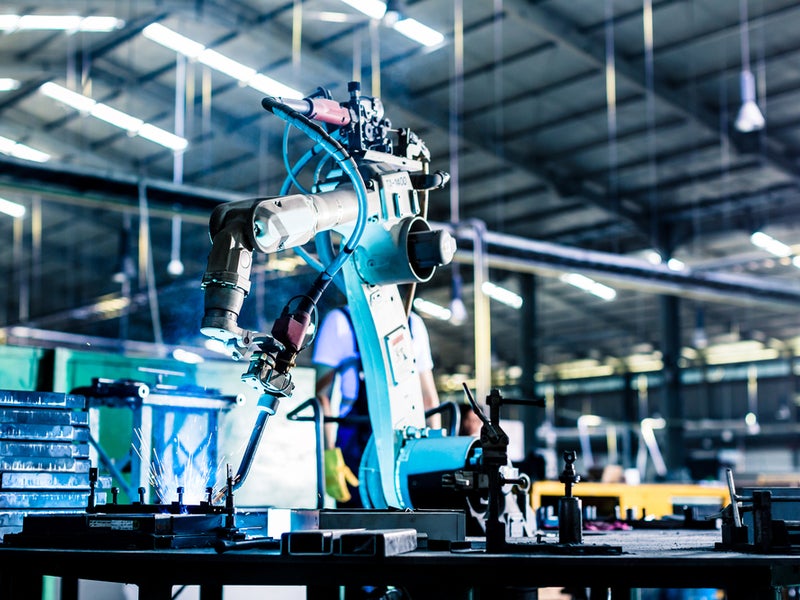
The future of work will shape both factories and offices, encouraging greater collaboration between humans and technology, and empowering workers with new digital skills. In the background, the increased use of technology is bringing about profound political, economic, and social change, especially visible in the gig economy and the issues it raises, the debate around greater automation, and the increased mobilisation of tech workers.
Listed below are the key regulatory trends impacting the future of work, as identified by GlobalData.
Antitrust and data privacy
Technological change and globalisation have given rise to big companies with a huge concentration of market power that systematically collect and use personal data, often without the user’s knowledge or express permission. As Big Tech companies, including Google, Amazon, and Microsoft, are leaders in many of the technologies enabling the future of work, regulatory oversight has the potential to influence their position in this theme.
Competition laws have historically targeted companies whose anti-competitive behaviour undermines consumer’s rights. In today’s digital economy, internet services are provided for free, but customers are required to hand over personal data and suffer other non-material costs, such as reduced security and privacy violations. As such, antitrust regulators are shifting their focus from investigating monopolistic practices in product markets to investigating abuses relating to customer data. This approach has already resulted in increased oversight and fines for antitrust as well as data privacy violations.
Regulating the gig economy
The gig economy has been shaping work in the absence of traditional forms of trade unionism, like collective bargaining. In addition, regulatory structures around the world were not written with phone-based apps and platform work in mind. This has hindered the ability for gig workers to improve their conditions and wages. However, over the last year we have seen the first attempts by legislators to reign in the gig economy. In 2019, California passed a landmark workers’ rights bill, which paves the way for workers in the gig economy to earn the minimum wage, take parental leave, and receive unemployment insurance.
Ride-hailing companies like Uber and Lyft have tried to push back, as their entire business model is at stake, but to no avail. In May 2020, California sued Uber and Lyft, alleging that their classification of drivers as independent contractors was in violation of the new law. However, approaches to regulating the gig economy vary across jurisdictions, and there is a general lack of clarity in arbitration rulings.
Robot tax
Advocates of a robot tax, including Microsoft’s co-founder Bill Gates, support the introduction of taxes to slow the adoption of robots in workplaces and suggest the money raised could be used to retrain people put out of work by automation. However, there are issues that could make a robot tax difficult to implement. Firstly, it’s hard to define what a robot is, as autonomy is present in almost all technologies. This poses challenges when it comes to agreeing when a job has been replaced by a robot. Also, it’s not clear whether a robot tax should include things like open-source code, which can significantly speed up the development of software with reduced number of engineers.
How well do you really know your competitors?
Access the most comprehensive Company Profiles on the market, powered by GlobalData. Save hours of research. Gain competitive edge.

Thank you!
Your download email will arrive shortly
Not ready to buy yet? Download a free sample
We are confident about the unique quality of our Company Profiles. However, we want you to make the most beneficial decision for your business, so we offer a free sample that you can download by submitting the below form
By GlobalDataIn addition some commentators point to the risk of slowing down capital investment and ultimately, harming the economy. If companies are less willing to invest in new tech because they fear an extortionate robot tax, those in the tech sector will be less willing or able to develop it.
This is an edited extract from the The Future of Work – Thematic Research report produced by GlobalData Thematic Research.






Related Company Profiles
Amazon.com Inc
Microsoft Corp
Google LLC
Lyft Inc